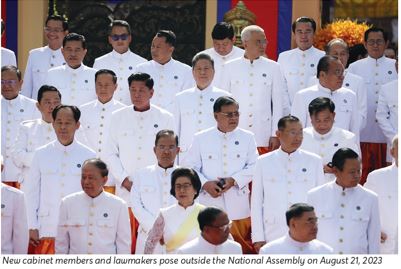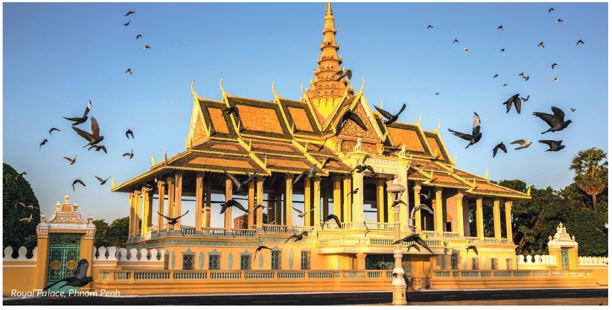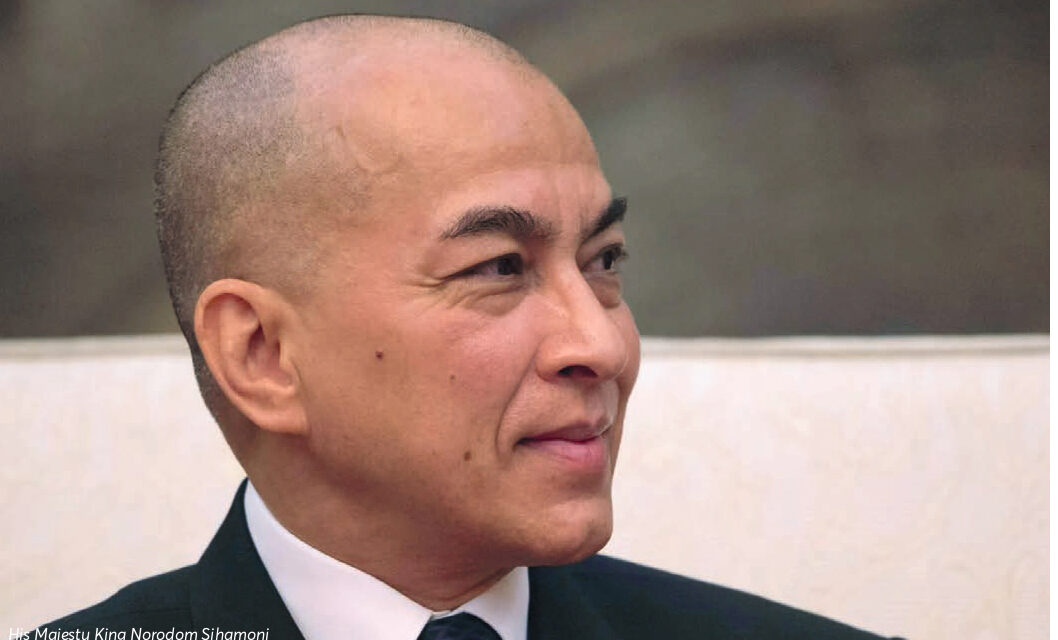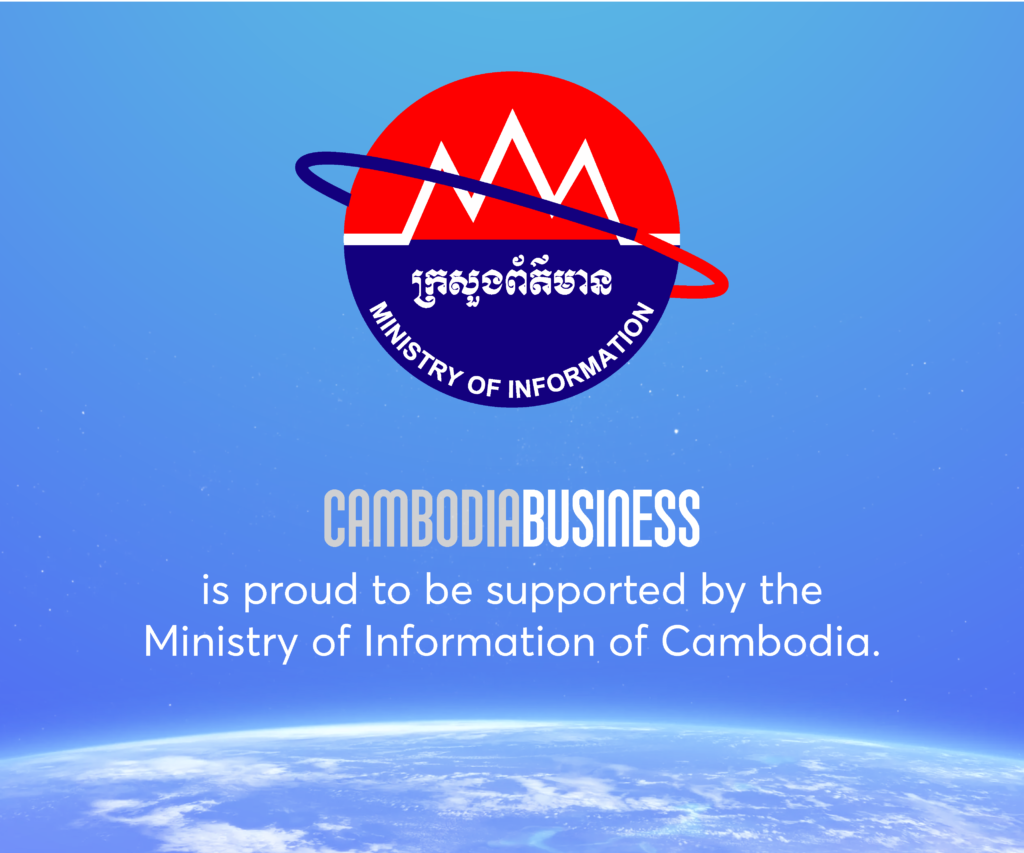His Majesty King Norodom Sihamoni issued a Royal Decree on August 22, 2023 to appoint the new Council of Ministers of the cabinet with H.E. Hun Manet as the Prime Minister for the seventh legislature of the National Assembly (NA) a day after all of the 125 elected lawmakers of the NA approved the cabinet’s composition proposed by H.E. Hun Manet.
The Council of Ministers’ composition of the new Royal Government of Cambodia (RGC) for the seventh legislature of the NA is divided into four main groups that include the one Prime Minister, ten Deputy Prime Ministers, 21 Senior Ministers and 30 Ministers. However, some cabinet’s members hold posts as both Deputy Prime Ministers and Ministers.
According to the Royal Decree, seven members of the Council of Ministers hold posts as both Deputy Prime Ministers and Ministers including Aun Pornmoniroth, who is also appointed as the Minister of Economy and Finance, Hang Chuon Naron as the Minister of Education, Youth and Sport, Sar Sokha as Minister of Interior and Tea Seiha as Minister of Defense.
The other three are Sok Chenda Sophea who was appointed as the Minister of Foreign Affairs and International Cooperation, while Vongsey Vissoth and Keut Rith were appointed as the Minister in charge of the Council of Ministers and Minister of Justice respectively, according to the Royal Decree. Among the seven cabinet’s members, Sokha, Seiha, Sophea and Vissoth are among the new ministers, while Pornmoniroth, Naron and Rith hold the same ministries.
The members of the Council of Ministers who were appointed to hold only Deputy Prime Minister include Neth Savoeun and Sun Chanthol, who was the Minister of Public Works and Transport in the former government for the sixth legislature of the NA, which was run by the former Samdech Prime Minister Hun Sen, who is predecessor of the new Premier Hun Manet.
The Royal Decree also pointed out that all of 21 Senior Ministers are appointed to be in charge of special missions, while the cabinet’s members who were appointed to hold new minister post but not deputy prime minister include Minister of Rural Development, Chhay Rithisen, Minister of Commerce Cham Nimul, Minister of Industry, Technology, Science, and Innovation Hem Vanndy, Minister of Mines and Energy Keo Ratanak and more.
Other new and young minsters include Minister of Public Works and Transports Peng Ponea, Minister of Labor and Vocational Training Heng Sour, Minister of Information Neth Pheaktra, Minister of Civil Services Hun Many, Minister of Tourism Sok Sokhen and Minister of Agriculture, Forestry and Fisheries Dith Tina, according to the Royal Decree.

However, His Majesty King Norodom Sihamoni’s Royal Decree also pointed out that two of the 30 ministers under the new government—Mao Havannall and Lam Chea—were appointed as the ministers in charge of the State Secretariat of Civil Aviation and the State Secretariat of Border Affairs respectively, but the latter has been newly established under new government
After forming the new RGC, Prime Minister Hun Manet chaired the first plenary session of the Council of Ministers for the seventh legislature of the NA on August 24, 2023, mainly to announce the official launch of the Pentagonal Strategy-Phase I and Key Measures of the RGC, which aims at taking Cambodia to achieving high income economy status by 2050.
“It will also serve as a guide to direct activities of all stakeholders to continue maintaining the momentum of peace and the accumulation of the past achievements, as well as the building of foundations to achieve the accelerated development in the medium and long terms through targeted reforms across all areas. I would like to take this precious opportunity to submit [it] to our session, development partners, stakeholders and the people to be informed of this strategy as well as to jointly collaborate in implementing this strategy,” said PM Hun Manet.
Prime Minister Hun Manet also emphasized that the next 25 years will be a new cycle for Cambodia, and the country aspires to take its national pride to new heights as it did during the Angkor era, by building a nation that is strong, vital, glorious, and prosperous towards a high-income country by 2050 even though Cambodia has been facing increasing changing, difficult and uncertain world, which requires that it need to adapt to the changing global trends.
Prime Minister Hun Manet added that the Pentagonal Strategy is a forward-looking strategy for the next 25 years, which has been planned to be set out and implemented in five successive phases, and aligning with the political platform of the RGC for each legislature of the NA. Each phase will be adjusted based on the actual context of the country, the region and the world, as well as the experiences resulted from the implementation of the previous phases.
“These challenges require a strong focus on enhancing leadership and institutional capacity at all levels, as well as ensuring sound policies, practical implementation capacity, results and accountability,” said the Premier, adding that the RGC adopts the Pentagonal Strategy-Phase I for Growth, Employment, Equity, Efficiency and Sustainability based on practical needs for the first five years which is the seventh legislature of the NA.
Prime Minister Hun Manet also said that the structure of the Pentagonal Strategy-Phase I sets three main pillars including the core of the strategy to reform and strengthen governance, overarching environment to ensure a conducive environment for the implementation of the entire strategy, and five strategic pentagons to promote economic growth and social progress.
Human capital development is the first pentagon with five priorities that include enhancement of the quality of education, sports, science and technology, technical skills training, improvements of people’s health and well-being, strengthening of social protection system and food system and strengthening of quality of citizenship of a high civilized society with morality, equity and inclusiveness, according to Prime Minister Hun Manet.
The second pentagon is the economic diversification and competitiveness enhancement, which also has five priorities that include development of key sectors and new sources of economic growth, enhancement of connectivity and efficiency in transport and logistics, energy, water supply and digital sectors, improvements of business and investment environment strengthening of efficiency and attractiveness of special economic zones, including industrial parks, agro-industrial parks and domestic free-trade zones, and innovation of financing mechanisms and financial products to support investment.
Development of private sector and employment is the third pentagons with five priorities that include development of labor market, promotion of micro, small and medium enterprises (MSMEs), startups, entrepreneurship and development of informal economy, strengthening of public-private partnership, promotion of competition and strengthening of the banking system and non-bank financial sector.
The pentagon 4 is resilient, sustainable and development that focuses on five priorities including optimization of demographic dividends, strengthening of demographic resilience and promotion of gender equality,

sustainable management of natural resources, cultural heritages and tourism, promotion of agriculture and rural development, strengthening of urban management and modernization and ensuring environmental sustainability and readiness for responding to climate change as well as promotion of a green economy.
Lastly, development of digital economy and society is the fifth pentagon with five priorities that include building digital government and digital citizens, development of digital economy, digital business, e-commerce, and digital innovative system, building and development of digital infrastructure and trustworthiness building in digital system and development of financial technology.
Additionally, the Pentagonal Strategy Phase I has also set five strategic objectives that include (1) ensuring crisis-resilient economic growth of around 7 percent per year on average, (2) creating more jobs, both quantity and quality, for Cambodian people, especially for the youth, (3) achieving the poverty reduction targeting of below 10 percent and continuing to keep the poverty rate to a minimum level, (4) continuing to strengthen governance capacity and improving the quality of public institutions and lastly (5) ensuring sustainable socio-economic development and building resilience to climate change.
Prime Minister Hun Manet, who sworn in as the new Prime Minister at the Royal Palace in Phnom Penh on August 22, 2023 along with all new members of the cabinet, also pointed out that the RGC for the seventh legislature of the NA identifies five key priorities for the Pentagonal Strategy-Phase I, namely People, Road, Water, Electricity and Technology that are clearly reflected in the strategic pentagons in the whole structure of the strategy.











